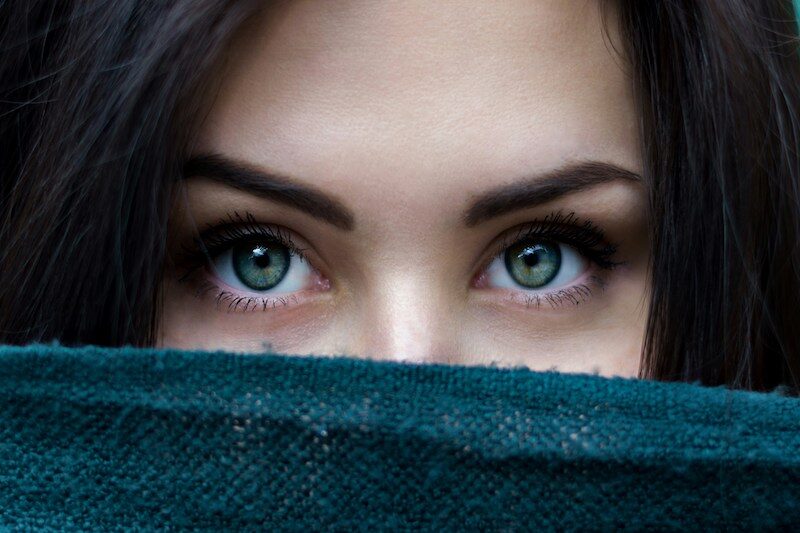In case you’ve missed the memo, calling someone exotic is not a compliment. As personal essays, academic articles and social media will tell you, the term reinforces white beauty standards, turning racialized people into outsiders, curiosities, and fetish objects.
I understand this stance. As an Indian-Pakistani Muslim with brown skin and blue eyes, I’ve been exotified all my life.
During my undergrad years in the ’90s, for example, two students approached me after a seminar to ask about my ‘roots.’ When I said South Asian, one of them pumped a fist triumphantly. ‘I knew it!’ she said, then turned to her friend. ‘You owe me dinner.’ Her friend shrugged. ‘I thought you might be Middle Eastern or Mexican. You have that exotic look that’s hard to place.’
The experience left me with a weird feeling. Rather than paying attention to the prof, it seemed my peers had been scrutinizing my appearance and taking bets on my ethnicity. At the time, I knew this could be considered racist. Yet, another part of me was secretly pleased by their fascination.
I’ve never outgrown this taboo delight.
These days, people are less likely to call me exotic — the term has fallen out of favour. Instead, they ask about my name’s origin or “background.” Some comment on my “very unusual” features or express disbelief about my unmixed South Asian lineage. People have actually insisted I must possess a few drops of “European blood.”
Of course, some of these inquiries are offensive. But if I interpret the person’s intentions as benign, it’s gratifying to know I can still — in my fifties no less — make an impression on someone. That I stand out.
This is particularly important to me since I’m an outrageous flirt. If it weren’t for my racial ambiguity, I suspect I’d have less opportunity to indulge.
The fact is, according to prevailing beauty standards, I’ve got issues. Dark bulging bags scoop under my eyes. New doctors invariably think this “hyperpigmentation” indicates a thyroid condition. Not in my case. My face is also not considered well-balanced. When I was a baby, a family friend looked me over and said to my mother, “Eyes like the sea — too bad about the nose.” He then proceeded to suggest regularly pinching my nostrils to reshape it as I grew. Apparently, Mama failed to implement this DIY plastic surgery. My sniffer is still sizable.
I suspect that rocking an exotic look partially offsets these aesthetic disadvantages.
Which brings us to the racial fetishization question. This obnoxious behaviour is often accompanied with reductionist stereotypes. I’ve personally had a guy suggest my Indian roots should naturally blossom into tantric expertise. Sadly, no.
But I do enjoy consensual fetishization. This is controversial. Taking pleasure in emphasizing — even exaggerating — ethnic differences can fall under “race play,” a highly contentious practice, even for the kink community. But my version keeps it at the silly, satirical level.
I have a running joke with my white partner that he’s lucky he married me. After feeding him some homemade veggie korma, I will treat him to a “Pakistani leg massage” — a traditional wifely duty that involves pressing down on his thighs like I’m making roti.
I also enjoy fetishizing him, particularly his prairie province upbringing. I love talking about how Saskatchewan’s best export is not wheat, but sweet, snuggly boyfriends.
To be clear, my husband is not a “spice trader” (a term I recently learned that describes white people who seek romance or sex with South Asians). And I would adore him whatever his background. But I do think our contrasting cultures, childhoods, religions, and yes, probably skin tones, add a frisson to our intimacy.
Exotification among strangers is more dicey. There are no etiquette rules for how to say, “I find your features intriguing. May I ask prying questions?” So even though I might enjoy being exotified by well-meaning randos, since so many others feel differently, I advocate that people refrain.
Being labeled “exotic” is also a privilege compared to what more marginalized women endure. Generally speaking, “exotic” doesn’t mean totally alien. Rather it is the familiar layered onto the foreign, in my case blue eyes (associated with whiteness) combined with brown skin (associated with outsider).
Compare my experience to, for example, hijab-wearing Muslims. In the Global North, they often face explicit prejudice, harassment, and Islamophobic laws that infringe upon their participation in public life. They’re not being “exotified,” they’re being demonized or constructed as brainwashed victims that need so-called secularism or white feminism to save them.
The discrimination I face is of a different kind. People don’t read me as Muslim, which means they sometimes say things in my presence that conflate my faith with barbarity. Once I reveal my identity, the Islamophobe either gives an awkward sorry-not-sorry apology, protests that they’re not talking about “moderates” like me, or doubles down on their bigotry. It’s infuriating, but it’s nothing compared to what people who veil have to deal with.
Which brings me to the question posed by my title. The answer must be yes, enjoying exotification does make me a bad feminist of colour. It’s a privilege denied to many others and it is usually harmful when it happens without the prior establishment of consent.
But I’ve also discovered feminists who’ve helped me make peace with my mixed feelings. Roxane Gay’s book Bad Feminist, for example, encourages us to be honest about our messy selves, even if it means admitting we extract pleasure from problematic encounters. bell hooks, another feminist icon, has also suggested that exotification can perhaps be redeemed. In a 1992 essay, hooks suggested that “desire for the Other,” while usually dehumanizing, still holds the potential to foster egalitarian connection. I hope she’s right.
And at the very least, I can assure you, consensual exotification does add some spice to a marriage.
Photo by Alexandru Zdrobău on Unsplash
